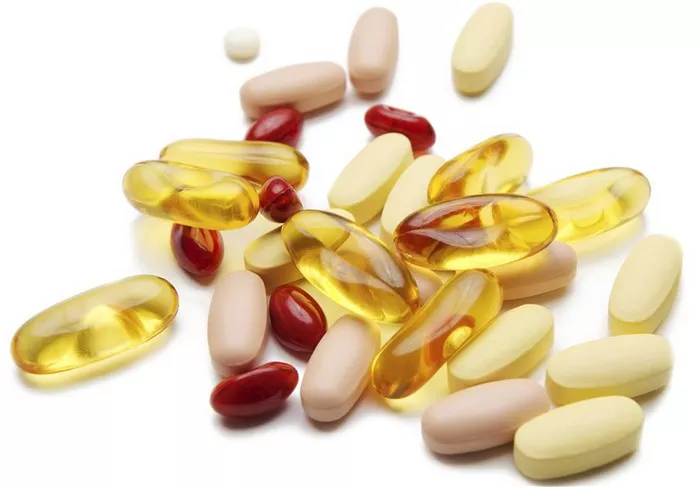Cracked lips, also known as cheilitis, can be a common and uncomfortable condition characterized by dryness, peeling, and fissures in the delicate skin of the lips. While external factors such as cold weather, dehydration, and lip-licking can contribute to cracked lips, nutritional deficiencies, including vitamins, may also play a role. This article aims to explore the role of vitamins in treating cracked lips and provide guidance on selecting the appropriate vitamins to support lip health.
Understanding Cracked Lips: Causes and Symptoms
Causes of Cracked Lips
Cracked lips can result from a variety of factors, including environmental, lifestyle, and medical conditions. Common causes of cracked lips include:
1. Dry or cold weather conditions that can strip moisture from the lips
2. Dehydration, which can lead to dryness and flakiness
3. Excessive lip licking or biting, which can irritate the delicate skin of the lips
4. Allergic reactions to lip care products, cosmetics, or certain foods
5. Medical conditions such as eczema, psoriasis, or nutritional deficiencies
Symptoms of Cracked Lips
The symptoms of cracked lips can vary in severity and may include:
1. Dryness and flakiness of the lips
2. Peeling or shedding of the skin
3. Redness or inflammation
4. Pain or discomfort, especially when eating or speaking
5. Fissures or cracks in the skin, which may bleed or become infected
The Role of Vitamins in Lip Health
Vitamins play a crucial role in maintaining the health and integrity of the skin, including the delicate skin of the lips. Certain vitamins are known to support skin hydration, repair damaged tissues, and protect against environmental stressors, all of which are essential for preventing and treating cracked lips.
Vitamin E
Vitamin E is a fat-soluble antioxidant that is known for its skin-nourishing properties. It helps protect the skin from oxidative damage caused by free radicals, which can contribute to dryness, inflammation, and premature aging. Vitamin E also supports skin repair and regeneration, making it beneficial for treating cracked lips and promoting healing.
Vitamin C
Vitamin C, also known as ascorbic acid, is a water-soluble antioxidant that plays a vital role in collagen synthesis, a protein that provides structural support to the skin. Collagen helps maintain the elasticity and integrity of the lips, preventing dryness and cracking. Additionally, vitamin C has anti-inflammatory properties that can help reduce redness and inflammation associated with cracked lips.
Vitamin B Complex
The B vitamins, including B1 (thiamine), B2 (riboflavin), B3 (niacin), B5 (pantothenic acid), B6 (pyridoxine), B7 (biotin), B9 (folate), and B12 (cobalamin), are essential for overall skin health, including the lips. B vitamins support skin hydration, promote cell turnover, and play a role in lipid metabolism, all of which contribute to maintaining soft, smooth lips. Deficiencies in certain B vitamins, such as riboflavin (B2) and niacin (B3), have been linked to cracked lips and other skin problems.
Choosing the Right Vitamins for Cracked Lips
When selecting vitamins to support lip health and treat cracked lips, it is essential to choose high-quality supplements that contain bioavailable forms of vitamins and are free from unnecessary additives or allergens.
Vitamin E Supplements
Vitamin E supplements are available in various forms, including capsules, softgels, and topical oils or creams. Look for vitamin E supplements derived from natural sources, such as d-alpha-tocopherol or mixed tocopherols, as they tend to be more bioavailable and effective than synthetic forms. Topical vitamin E oil or cream can be applied directly to the lips to provide nourishment and hydration.
Vitamin C Supplements
Vitamin C supplements are typically available in the form of tablets, capsules, or powders. Choose vitamin C supplements that contain ascorbic acid or other bioavailable forms, such as calcium ascorbate or magnesium ascorbate. It is also important to consider the dosage of vitamin C, as high doses may cause gastrointestinal discomfort in some individuals. Topical vitamin C serums or lip balms can also be applied to the lips to provide antioxidant protection and promote collagen synthesis.
B Vitamin Complex Supplements
B vitamin complex supplements are available in various formulations, including tablets, capsules, and liquid formulations. Look for B vitamin complex supplements that contain a balanced blend of all eight B vitamins in their active forms for optimal absorption and effectiveness. Some supplements may also include additional nutrients such as biotin, folate, and pantothenic acid, which are beneficial for skin health. Additionally, consider incorporating foods rich in B vitamins, such as whole grains, leafy greens, nuts, seeds, and legumes, into your diet to support overall skin health and lip hydration.
Additional Tips for Treating Cracked Lips
In addition to taking vitamin supplements, there are several other steps you can take to promote healing and prevent further damage to the lips:
Hydrate Regularly
Drink plenty of water throughout the day to stay hydrated, as dehydration can exacerbate dryness and contribute to cracked lips. Limit your intake of caffeinated and alcoholic beverages, as they can have a dehydrating effect on the body.
Protect Your Lips
Apply a moisturizing lip balm with SPF to protect your lips from sun damage and environmental stressors. Look for lip balms containing hydrating ingredients such as shea butter, coconut oil, beeswax, or lanolin. Avoid licking or biting your lips, as this can further irritate the skin and worsen cracking.
Avoid Irritants
Avoid lip care products, cosmetics, or toothpaste containing harsh chemicals or allergens that may irritate the lips and exacerbate cracking. Choose fragrance-free and hypoallergenic products whenever possible, and patch test new products before applying them to your lips.
Conclusion
Cracked lips can be a bothersome and uncomfortable condition, but with the right vitamins and proper care, you can nourish and protect your lips to promote healing and prevent further damage. Vitamins such as vitamin E, vitamin C, and B vitamins play essential roles in maintaining skin health and supporting lip hydration. By incorporating high-quality vitamin supplements, hydrating regularly, and protecting your lips from environmental stressors, you can keep your lips soft, smooth, and healthy. If you continue to experience persistent or severe symptoms of cracked lips, consult with a healthcare professional for further evaluation and treatment.
[inline_related_posts title=”You Might Be Interested In” title_align=”left” style=”list” number=”6″ align=”none” ids=”6547,6495,6492″ by=”categories” orderby=”rand” order=”DESC” hide_thumb=”no” thumb_right=”no” views=”no” date=”yes” grid_columns=”2″ post_type=”” tax=””]
































